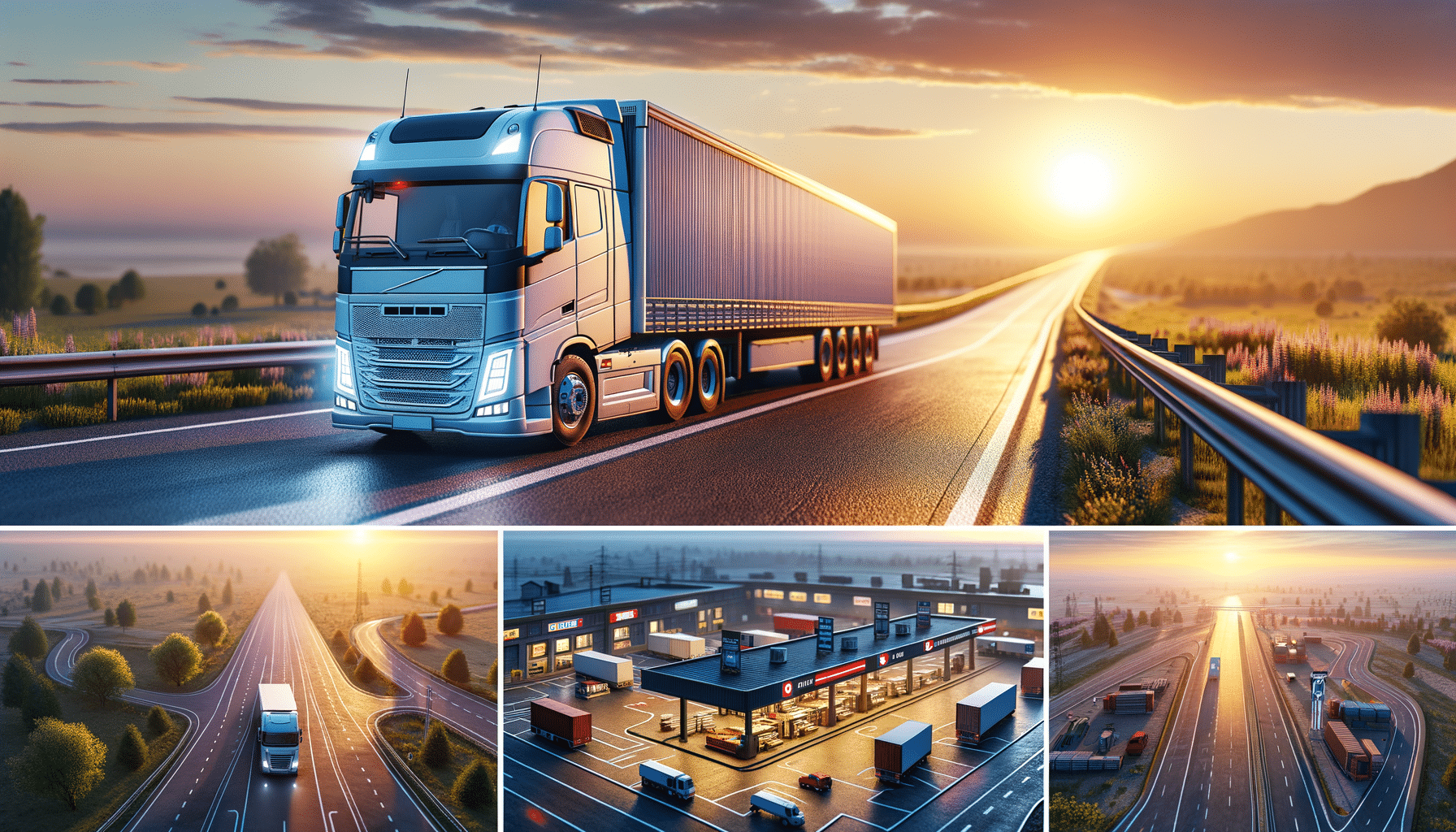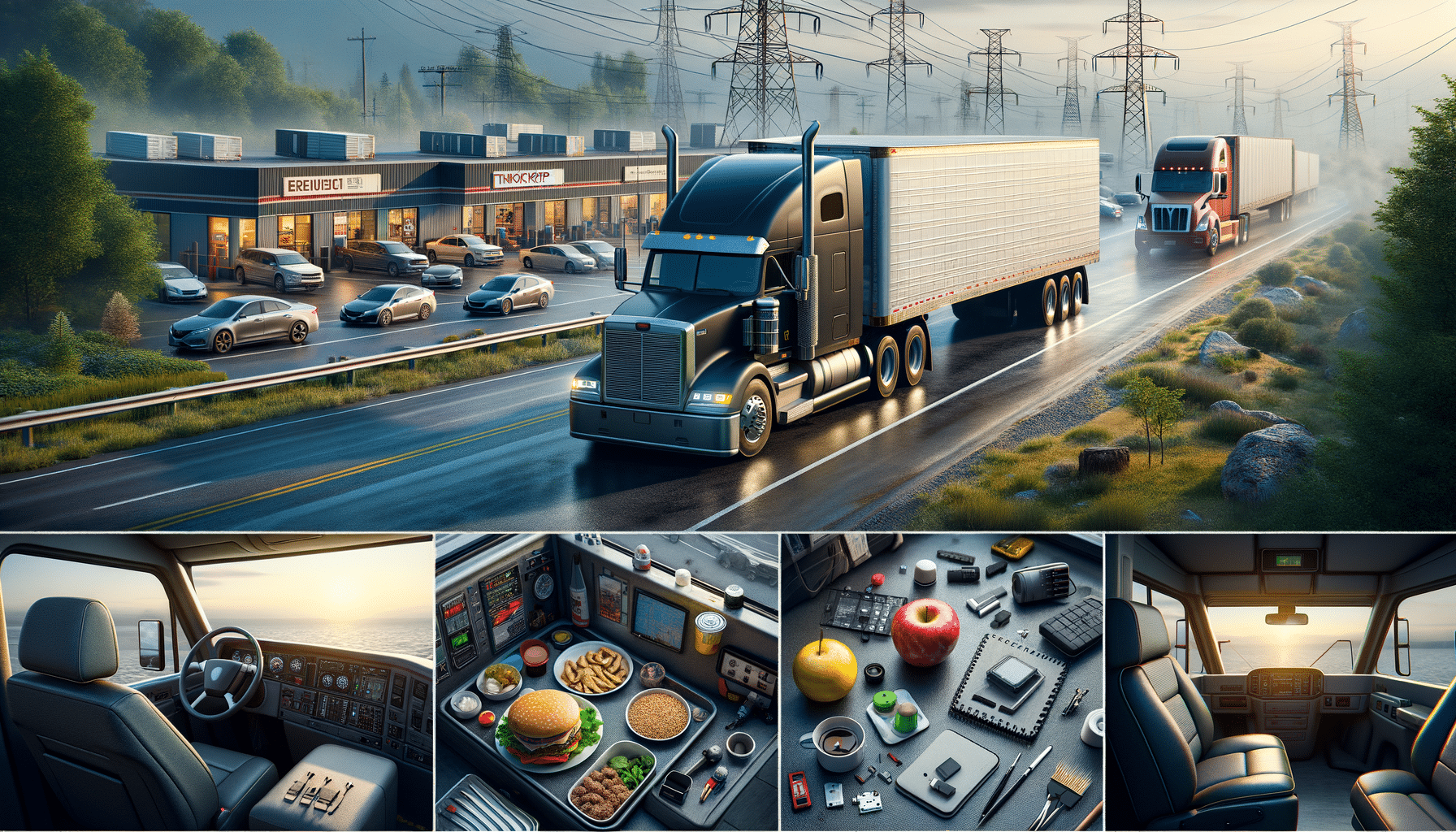
Amazing Life Of A Truck Driver
The Role of a Truck Driver in Modern Society
Truck drivers play an integral role in modern society, serving as the backbone of the logistics and supply chain industry. Their contributions are often overlooked, yet they are crucial in ensuring that goods are delivered efficiently and on time. Without truck drivers, the shelves of our supermarkets would remain empty, and industries would struggle to receive the raw materials needed for production.
Truck drivers facilitate the movement of goods across vast distances, bridging the gap between manufacturers and consumers. This role becomes even more significant in times of crisis, such as natural disasters or pandemics, where the timely delivery of essential goods can make a significant difference. The demand for truck drivers is consistently high, reflecting their importance in maintaining the flow of commerce.
The profession also contributes to the economy by providing numerous job opportunities. Truck driving is not just about operating a vehicle; it involves understanding logistics, adhering to safety regulations, and often requires long hours on the road. Despite these challenges, many drivers find the work rewarding due to the sense of independence and the opportunity to travel.
Understanding the Dynamics of Truck Stops
Truck stops are more than just refueling stations; they are vital hubs for truck drivers, offering a range of services and a place to rest during long hauls. Understanding the dynamics of truck stops is essential for appreciating the life of a truck driver. These stops provide amenities such as dining, showers, and rest areas, which are crucial for drivers who spend extended periods on the road.
Truck stops also serve as social gathering points where drivers can connect with peers, share experiences, and gather information about road conditions or industry news. This sense of community is vital for drivers who often work in isolation. Furthermore, truck stops are equipped with facilities to ensure the safety and comfort of drivers, such as secure parking and maintenance services.
The strategic location of truck stops along major highways and routes is designed to maximize convenience and efficiency for drivers. They are often positioned at intervals that align with the mandatory rest periods required by law, ensuring that drivers can comply with regulations while maintaining their schedules.
The Challenges and Rewards of Truck Driving
Truck driving is a profession that comes with its unique set of challenges and rewards. One of the primary challenges is the demanding schedule, which often requires long hours away from home and family. Drivers must also navigate various weather conditions and road environments, which can be both physically and mentally taxing.
Despite these challenges, truck driving offers several rewards that attract many to the profession. The opportunity to travel and see different parts of the country is a significant draw for those with a sense of adventure. Additionally, the job provides a sense of independence and autonomy that is appealing to many.
Financially, truck driving can be lucrative, especially for those willing to take on long-haul assignments. The industry often offers competitive wages and benefits, reflecting the critical role drivers play in the supply chain. The sense of accomplishment that comes from completing a delivery and knowing that one’s efforts contribute to the functioning of society is another rewarding aspect of the job.
Safety and Regulations in Truck Driving
Safety is a paramount concern in the truck driving industry, with numerous regulations in place to protect both drivers and the public. Understanding these safety measures is crucial for anyone considering a career in truck driving. Regulations govern various aspects of the job, including driving hours, vehicle maintenance, and load limits.
Compliance with these regulations is essential to prevent accidents and ensure the safety of all road users. Drivers are required to adhere to strict schedules that include mandatory rest periods to combat fatigue, a leading cause of road accidents. Regular vehicle inspections are also mandated to ensure that trucks are in optimal condition.
Training and certification are fundamental components of truck driving, equipping drivers with the skills needed to operate large vehicles safely. Ongoing education is often required to keep up with industry changes and new regulations. This focus on safety and regulation highlights the professional nature of truck driving and the responsibility that comes with the job.
The Future of Truck Driving
The future of truck driving is an intriguing topic, as technological advancements continue to reshape the industry. Automation and self-driving technology are at the forefront of discussions, promising to revolutionize logistics and transportation. However, the human element of truck driving remains irreplaceable, particularly in managing complex situations that require judgment and experience.
While technology may alter some aspects of the job, the demand for skilled drivers is unlikely to diminish. The industry is expected to evolve, with drivers taking on more supervisory roles as technology handles routine tasks. This evolution presents new opportunities for drivers to develop additional skills and advance their careers.
Environmental concerns are also influencing the future of truck driving, with a growing emphasis on sustainable practices. The adoption of alternative fuels and more efficient vehicles is gaining traction, aligning with global efforts to reduce carbon emissions. As the industry adapts to these changes, truck drivers will continue to play a pivotal role in shaping the future of transportation.


